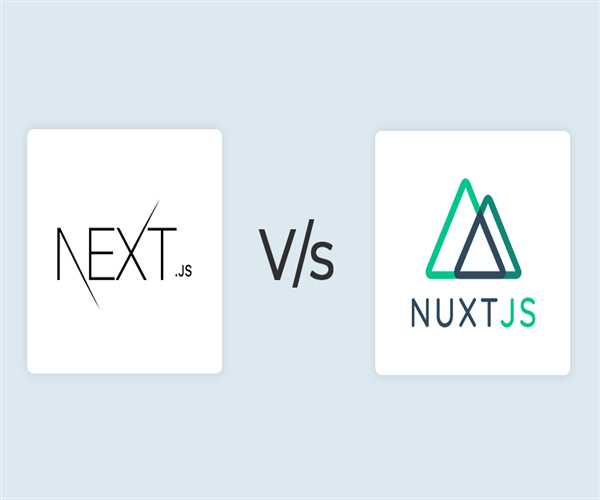Next.js and Nuxt.js are both popular frameworks for building server-side rendered (SSR) web applications using React and Vue.js, respectively. While they share some similarities in their functionality and approach, there are also some key differences between the two.
Next.js is a framework for building React-based web applications. It is built on top of the React library and provides a variety of tools and features for building SSR applications. Some of its key features include automatic code splitting, static site generation, and API routes.
One of the key advantages of Next.js is its flexibility. It can be used to build a wide range of web applications, from simple static sites to complex web applications with dynamic data and interactive features. It is also highly customizable, with a variety of configuration options and plugins available to extend its functionality.
Nuxt.js, on the other hand, is a framework for building Vue-based web applications. It provides similar functionality to Next.js, but is tailored specifically to the Vue.js ecosystem. Some of its key features include server-side rendering, automatic code splitting, and middleware support.

One of the key advantages of Nuxt.js is its simplicity. It provides a streamlined development experience with a minimal setup required to get started. It also includes a variety of built-in features and plugins, such as routing and Vuex state management, that make it easy to build complex web applications with Vue.
One of the main differences between Next.js and Nuxt.js is their approach to server-side rendering. Next.js uses a hybrid approach that combines server-side rendering with client-side rendering, allowing for fast and efficient page loads. Nuxt.js, on the other hand, uses a pure server-side rendering approach, which can result in slower initial page loads but provides more consistent performance across different devices and network speeds.
Another difference between Next.js and Nuxt.js is their ecosystem. Next.js has a large and active community of developers, with a wide range of plugins and extensions available to extend its functionality. Nuxt.js, on the other hand, has a smaller community but is tightly integrated with the Vue.js ecosystem, making it easy to use alongside other Vue libraries and tools.
In terms of use cases, Next.js is well-suited for building complex web applications with React, while Nuxt.js is well-suited for building simple to medium complexity web applications with Vue.js. Both frameworks are capable of handling a wide range of use cases, but their differences in approach and functionality make them better suited for certain types of applications.
In conclusion, Next.js and Nuxt.js are both powerful frameworks for building server-side rendered web applications using React and Vue.js, respectively. While they share some similarities in functionality and approach, they also have some key differences in their approach to server-side rendering, ecosystem, and use cases. By understanding these differences, developers can choose the framework that best fits their needs and requirements.